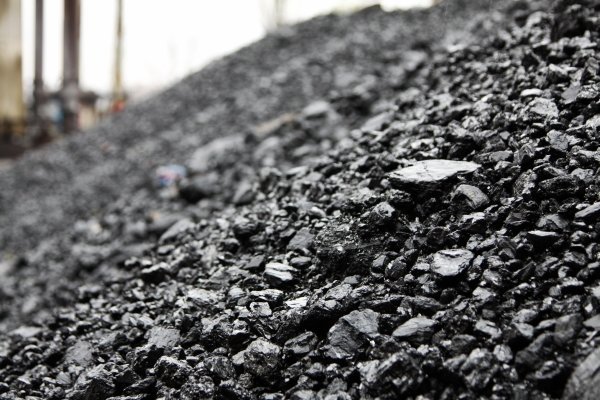MOSCOW, May 16 (RAPSI) - Witnesses claimed that “temporary” director of Inskoy mine stopped mining activities and ordered emergency repair works to be carried out preventing a disaster. It was Maxim Sidorov, who had been appointed director of Inskoy open-cut coal mine by Kemerovo Administration. Former management of the company ignored the danger to the mine.
The case over alleged extortion of a controlling stake in Inskoy mine is being heard at the Central Kemerovo City Court. Former senior officials of the Kuzbass region, employees of Russia's Investigative Committee regional branch have been charged.
Defense lawyers said that Inskoy mine was in a critical condition that could lead to the disaster amid social unrest.
Despite the risk to the mine board of management took no action
Sidorov held the post of mine director for five days in 2016 when the control over the mine was transferred to businessman Alexander Shchukin.
Sidorov testified in the court in April. He said that the mine faced a number of serious problems. Mining complex was out of order as it was clogged with mud. Moreover, the mine was under serious risk of crash, there was a lack of electricity, warning alarm system did not function.
Over a short period of time Sidorov managed to organize the recovery of the cleaning and protection system of the mining complex. Shchukin, in his turn, examined technical documentation, held a meeting with employees of the mine and made recommendations aimed at improving the situation, witnesses claimed.
At the moment Inskoy mine is under control of the bankruptcy receiver. The value of its assets at the time the alleged extortion took place has not been established yet. Investigators have not conducted any examination despite the fact that it might reveal the logic of the actions taken by the defendants.
Defendants’ lawyers claimed that the assets of the mine cost nothing due to its enormous debts.
Former managers of Inskoy mine claimed that the market value of its stock equals the assets book value and exceeds two billion rubles despite all the problems.
Management finds the asset to be high-priced, banks claim it is untrustworthy
Top managers of Inskoy mine, its managing company, and employees testified in court in March and April. Anton Tsygankov, who was indicated to be the owner of the mine and who was allegedly forced to give away 51% of its shares, testified as well.
Tsygankov was officially recognized as a victim, he asked for the case to be heard behind closed doors.
The court was told that Inskoy mine experienced problems with securing new loans in banks as its reputation was besmirched. This situation was in part a result of the activities led by the former managing company and Tsygankov.
Key loans were provided by Gavril Yushvaev, who appeared on Forbes' list of richest billionaires.
Since January 2016, employees of the mine received 20% of their salaries, and by June salary arrears reached about 60 million rubles (nearly $1 million). The total amount of debts of the mine exceeded several billion rubles.
Witnesses claimed that key problems of the mine started in 2015. An installation chamber collapsed and it took several months to repair it. Soon after this incident miners reported a geological disturbance, management refused to rewire the lava and decided to overcome the disturbance. It was overcome only by autumn 2016. During this period of time coal reserves were sold out, mine resources were depleted, the mine ran up massive debts, mining equipment was strained beyond the limit. Nevertheless, the mine kept operating. As a result, by July 2016 it was in a critical condition, and workers went on strike.
New perspective for the court
Prosecutors charged Alexander Danilchenko and Aleksey Ivanov, then Deputy Governors of the Kemerovo region, Elena Troitskaya, the official of the administration of the region, employees of Russia's Investigative Committee regional branch, Sergey Kalinkin, then chief of regional department of the Investigative Committee, Alexander Shchukin and his lawyer Gennady Vernigor with extortion.
Shchukin says that he agreed to receive 51% of Inskoy shares, and he was absolutely sure the deal was cleared. Before the deal was closed he had transferred 100 million rubles to the “Miloserdiye” charity foundation, and part of the sum was used to pay the arrears of Inskoy employees. Prosecutors insist that this fact indicates partial admission of guilt.
In the meantime, witnesses testified that it was Kemerovo Administration and Shchukin who managed to prevent a disaster at Inskoy mine and calm down social tension. There is no confirmation that the mine assets cost no less than two billion rubles and it was in good condition as it was presented by former mine top managers of the mine. Moreover, problems with securing loans demonstrate that banks were rather skeptical about the alleged high value of Inskoy assets.
Taking into account these facts an uneasy decision looms for the Central Kemerovo City Court. It has to take into account all the facts along with the underlying motivation of the defendants in order to get to the bottom of what has really happened. At this point it doesn’t look like a common “especially large-scale extortion” because of the defendants’ position and the allegations concerning the value of the Inskoy assets.



